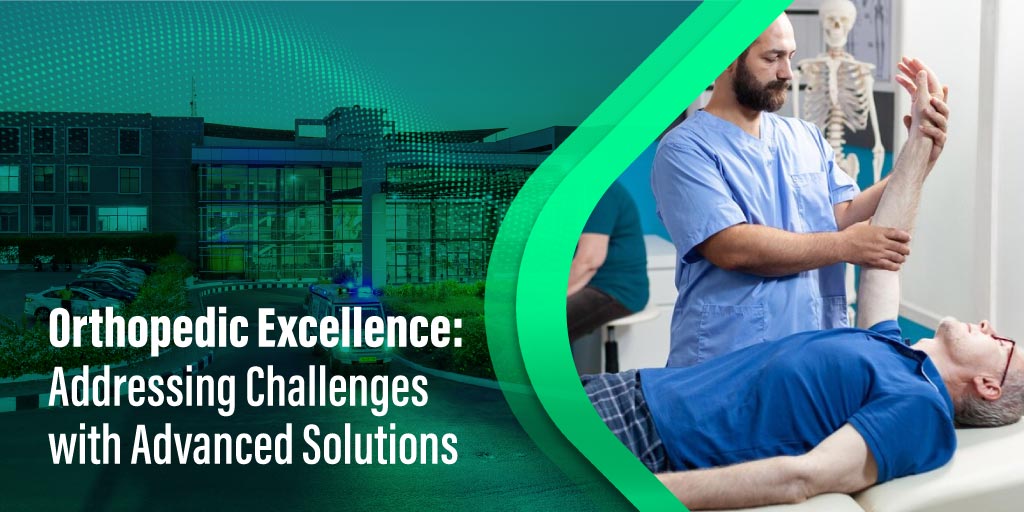
Orthopedic technology has made significant improvements, changing the treatment and recovery of many orthopedic illnesses. These improvements ensure that the best orthopedic specialists in Coimbatore give more effective and efficient treatment.
Advancements in orthopedics have improved patient results and transformed the way treatments are given. These innovations range from innovative surgical methods to advanced implant technologies.
Improvements in Orthopedic Treatment
Orthopedic technology has improved immensely bringing innovative ways to recurrent problems. These developments span a wide range of industries, including implant technology and many more.
Robotic-Assisted Surgery
- Orthopedic surgery has fundamentally transformed which offers greater control and precision during surgeries.
- Physicians can create a 3D representation of a patient’s anatomy by using imaging technology.
- With the aid of these tools, surgeons can plan and execute treatments more precisely.
- Since accurate implant location is essential for long-term success, robotic-assisted surgery is very helpful for joint replacement surgeries.
Modern Implant Materials
- Metal or plastic components were often used in the making of traditional joint implants which could eventually break out and require revision surgery.
- Recent developments in implant materials have produced stronger and more biocompatible alternatives, like ceramic, titanium, etc.
- These materials provide better results and fewer problems for patients by having a longer lifespan.
Regenerative medicine and bioengineering
- Orthopedic diseases can be treated with regenerative medicine which uses the body’s own healing capacity.
- It helps to repair the damaged tissues and improve tissue regeneration.
- Strategies like stem cell injections and growth factor therapies are being used to lower inflammation.
- It also helps in speedy recovery in disorders like cartilage damage and tendon injuries.
Digital Health Solutions
- Remote monitoring and telemedicine consultation techniques are transforming the way orthopedic care is delivered.
- Wearable technologies and telehealth apps help patients get tailored care plans.
- It also allows them to contact their healthcare professionals from the comfort of their homes.
- These technologies increase patient interaction and improve access to orthopedic services in rural areas.
3D Printing
- 3D printing technology has helped doctors to manufacture tools and implants that are uniquely suited for each patient.
- Orthopedic hospitals in Coimbatore now use a medical-grade 3D printer to make personalized hip and knee implants.
- To plan out treatments and optimize patient outcomes, they can also produce 3D-printed models.
Augmented Reality
- The use of augmented reality has evolved beyond amusement. Orthopedic surgery is one of the most useful technological advancements.
- Orthopedic surgeons in Coimbatore can get exceptional visual guidance by using augmented reality to observe the patient’s anatomy in real life.
- During practice exercises for orthopedic surgery training, AR is also used to create a more realistic surgical environment.
Telemedicine
- The COVID-19 epidemic forced the use of telemedicine to treat patients remotely.
- The advantages and convenience it offers patients and their doctors are too great to be ignored.
- Telemedicine has gained popularity in the current healthcare environment to treat patients who are unable to see their doctors in person because they reside in remote places or have transportation issues.
Orthobiologic Treatments
- Orthobiologics such as platelet-rich plasma therapy, encourage tissue healing and regeneration by utilizing the patient’s own naturally occurring cells.
- Sports medicine applications frequently employ this strategy to encourage a speedier recovery and better function.
Nanotechnology
- The use of components and materials of a nanoscale size is known as nanotechnology.
- Nanotechnology is being researched in orthopedics to provide new coatings and materials that will prolong the life and functionality of joint replacements.
Advancements in Orthopedic Surgery
In orthopedics, new technologies have improved patient results and speed up recovery. Studies show that over 64 percent of orthopedic physicians utilize apps on a daily basis for clinical purposes.
Less invasive surgical procedures
Minimally invasive methods include fewer incisions and less tissue damage than traditional open procedures. These methods often result in reduced discomfort and faster healing periods.
Non-Surgical Treatments
Many orthopedic diseases, including those that react favorably to medication and physical therapy, can be effectively managed without surgery.
Challenges in Orthopedic Advancement
Issues related to ethics and regulation
Concerns about the use of modern technologies, such as robotics and artificial intelligence come along with the need for clear guidelines about patient data protection and informed permission.
Price and Reliability
Although orthopedic treatments can greatly improve a patient’s quality of life, many people may not be able to afford them due to their high cost.
Multidisciplinary Cooperation
Because orthopedics is interdisciplinary, collaboration between surgeons and other medical experts is essential.
The Requirement for Higher Education
Orthopedic surgeons and staff may need ongoing education and support as a result of the learning curve associated with adopting and integrating new technologies into clinical practice.
The technology could bring about an important transformation in orthopedic care. It improves patient outcomes globally and offers new solutions to orthopedic issues. Orthopedic care professionals may overcome the difficulties associated with orthopedic care and give their patients better treatment by embracing innovation and continual improvement.








